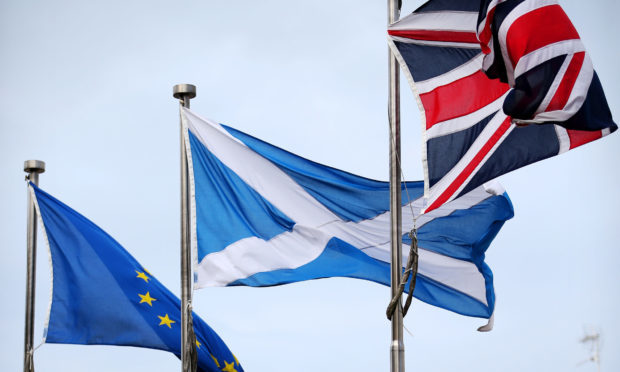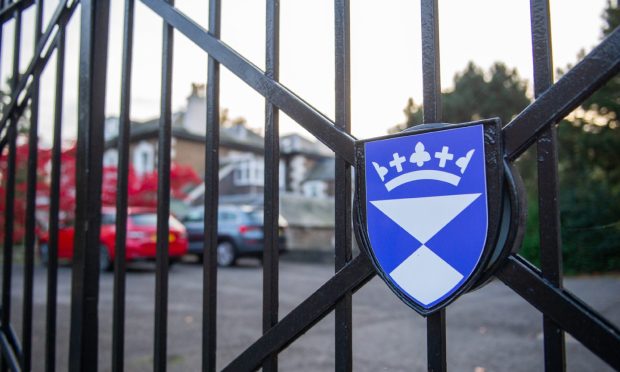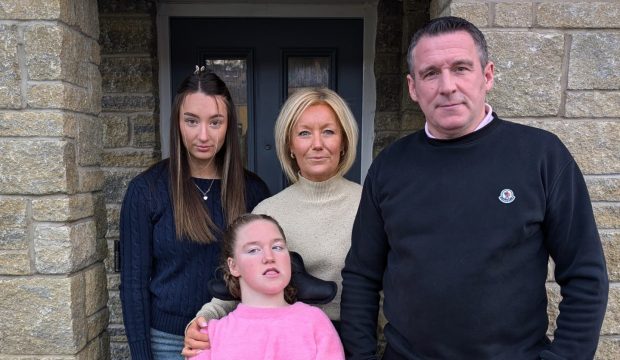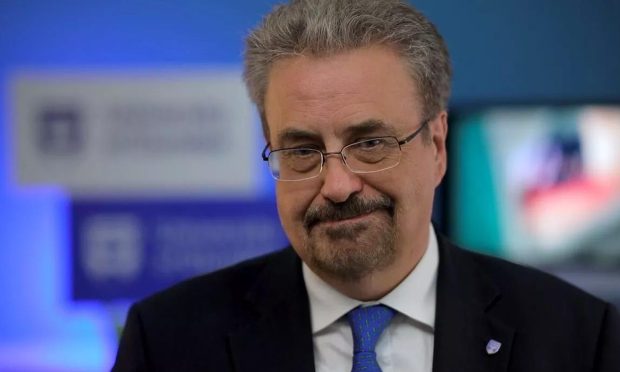The Scottish Government is appealing to children as young as eight to share their views on Brexit.
Critics branded the Twitter plea for youngsters to “work with” the government on a Europe panel “creepy”.
But the SNP administration defended the move as giving those who will be most affected by leaving the EU a “voice in the Brexit negotiations”.
The call by the Twitter account ScotGovEurope said: “Are you aged 8 – 18? Children and young people in Scotland are going to be affected by #Brexit, so we want your views!
“Apply to join the @cisweb Children & Young People’s Panel on Europe to work with @scotgov.”
It sparked claims that SNP ministers are trying to indoctrinate children on the constitution.
Are you aged 8 – 18? Children and young people in Scotland are going to be affected by #Brexit, so we want your views!
Apply to join the @cisweb Children & Young People's Panel on Europe to work with @scotgov.
Find out more & apply by 22nd August ?? https://t.co/aGDYtjmNAD pic.twitter.com/NjCCVDv98B— ScotGovEurope (@ScotGovEurope) July 13, 2018
Alison Preuss, of the Scottish Home Education Forum, said it is “inappropriate” for the Scottish Government and a children’s charity that is supported by state cash “to be exploiting young children in this way”.
“Individuals’ views on Brexit, whether children’s or adults’, are sensitive special category data, which should never be canvassed from minors without explicit parental consent,” said the Angus-based home educator.
“It is unethical and probably also breaches the general data protection regulation (GDPR).”
Some Twitter users said P4 children should be left to be kids and attacked the decision to bypass families and reach out directly to youngsters on Twitter, which is not designed for under-13s.
A marketing executive, who wants to remain anonymous, said it is “wholly unacceptable to attempt to contact kids via social media without parental consent”.
“The SNP is really obsessed with kids and many people are finding this both unacceptable and downright creepy,” he added.
The Children in Scotland charity, which received more than £200,000 in Scottish Government grants last year, is being helped by the SNP administration to run the children and young people’s panel on Europe.
Applicants are asked to submit answers to three questions, including one on their feelings on Brexit, before the panellists are picked at a selection day in Edinburgh.
The panel of about 20 young people is expected to meet four times this year and will “work directly with Mike Russell”, the SNP’s Government Business and Constitutional Relations Secretary.
The charity says that young people have a “right to be heard in the discussions about Brexit”, which they say is backed up by the UN Convention on the Rights of the Child.
“The panel will have the opportunity to make sure that the views of children and young people across the country are listened to and taken into account in his discussions with the UK Government,” it added.
A spokesman for the Scottish Conservatives said: “Just when you think the SNP has run out of ways to use Brexit to agitate for independence, it manages to stoop to a new low.”
Tavish Scott, the Lib Dem MSP, supported the move saying young people should be more involved.
But he added: “If the SNP are really intent on giving those most affected a voice in the whole Brexit debacle they should show their unequivocal support for a people’s vote on the final deal.”
Mumsnet chief executive Justine Roberts canvassed some of their supporters on the government move.
She said: “In general, Mumsnet users think it’s perfectly valid for under-16s to have political views and don’t in principle object to their opinions being sought, or to the Scottish Government using Twitter to publicise the existence of the panel.
“There’s more discomfort, though, around the possibility of using individuals – particularly at the younger age of the range – as ‘poster children’ for such a bitterly contested and partisan issue.
“As we’ve seen, Brexit conversations don’t tend to bring out the best in users on networks such as Twitter.”
A Scottish Government spokeswoman said: “Brexit is the single biggest threat to our economy and future prosperity, and children and young people will be most affected in the coming years.
“We are therefore supporting Children in Scotland to establish the children and young people’s panel on Europe and enable them to have a voice in the Brexit negotiations.
“Consultation on the impact of leaving the EU was a specific request of the Scottish Government when the Scottish Cabinet jointly met Young Scot and Children’s Parliament earlier this year.”










